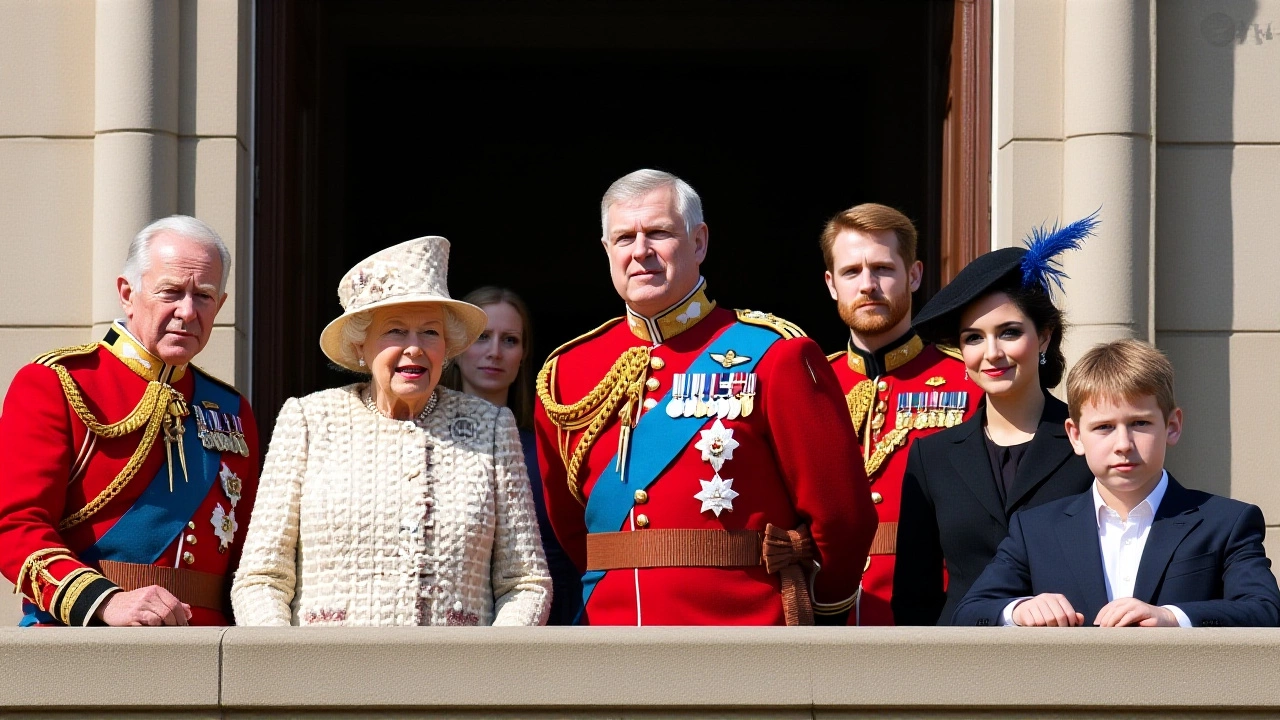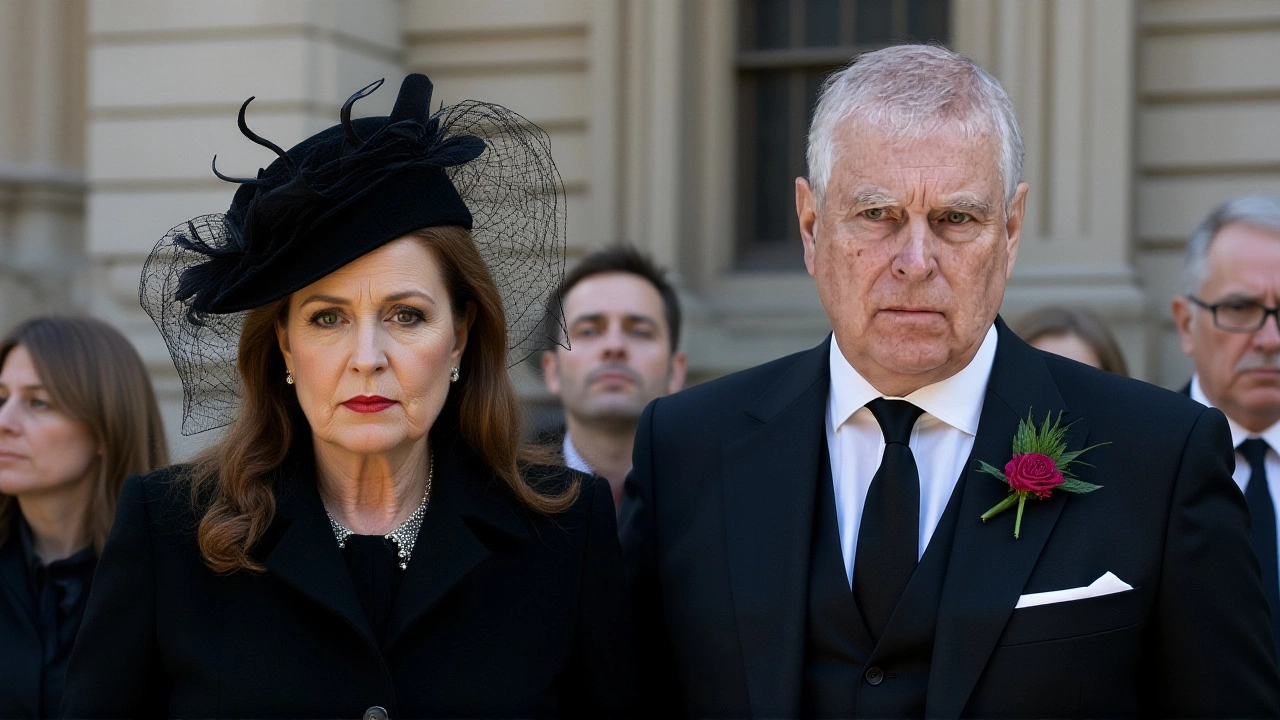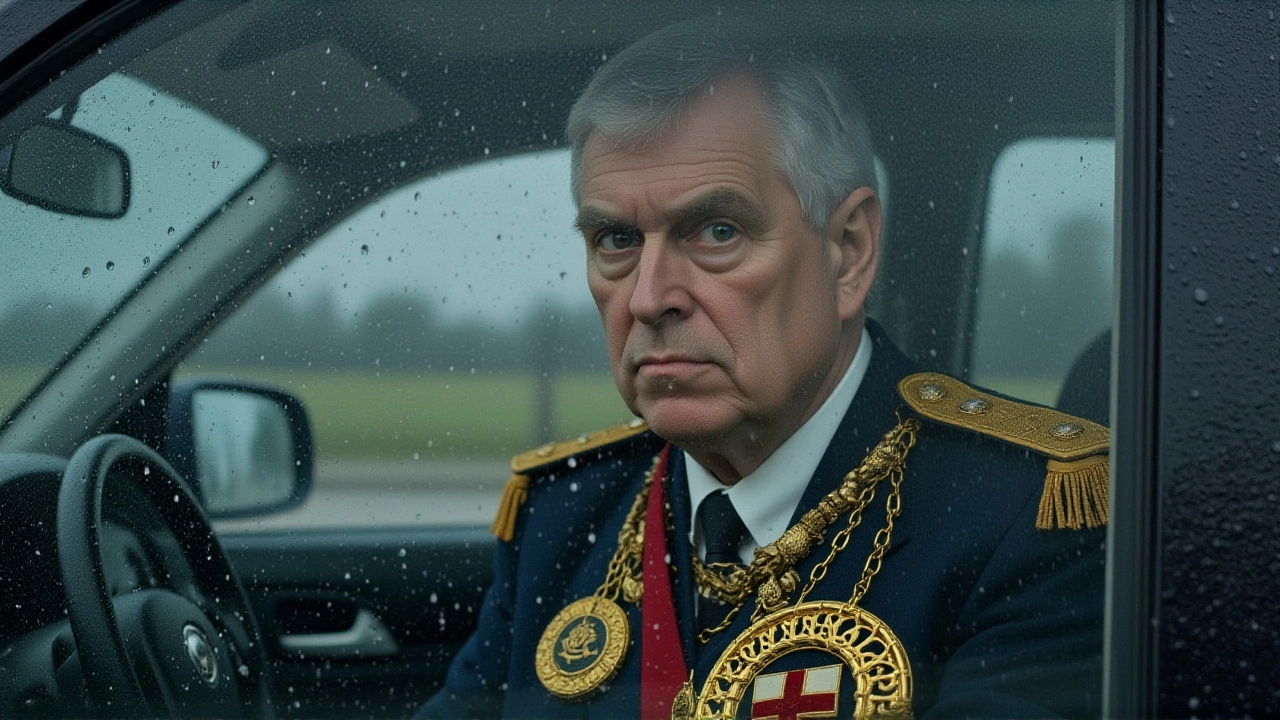On , Prince Andrew, Duke of York announced that, with the consent of King Charles III, he would no longer use the style “His Royal Highness” or any of the honours granted to him by the Crown. The move comes straight after new excerpts from the posthumous memoir of Virginia Giuffre were released, reigniting public fury over alleged sexual encounters tied to the late Jeffrey Epstein and his associate Ghislaine Maxwell. The decision, announced at 11:35 AM UTC, signals the most definitive break between the Duke and the British monarchy to date.
Background to the Royal Withdrawal
Prince Andrew’s ties to Epstein first surfaced in 2011, when a BBC Panorama interview showed him seated beside the convicted sex trafficker at a London charity event. The fallout was swift: by 2022 he had been stripped of his honorary military roles—including Captain General of the Royal Marines and Colonel of the Grenadier Guards—after more than 150 serving personnel petitioned for his removal. The Metropolitan Police Service publicly announced on June 15, 2022 that it would take “no further action” on the allegations, citing insufficient evidence.
New Allegations Fueling Action
The latest storm began when a publisher released excerpts from Giuffre’s memoir, alleging she was forced to have sex with Andrew at Ghislaine Maxwell’s New York apartment in 2009. The claim mirrors earlier statements from Giuffre, who said Epstein paid her $15,000 for a night with the Duke when she was 17. Though a 2016 deposition showed a photograph of Andrew with his arm around Giuffre and Maxwell in the background, supporters have long insisted the image was doctored. This time, Giuffre’s family argued that the memoir’s details, combined with flight‑log data, proved the meetings actually occurred.
Legal History and Settlements
In February 2022, Andrew settled a U.S. civil lawsuit filed by Giuffre for a reported £12 million (about $16 million). The settlement included a charitable donation and a public statement that he “never meant to malign” Giuffre’s character. The case had been a flashpoint since U.S. District Judge Lewis A. Kaplan denied Andrew’s motion to dismiss the claim in January 2022.
While the settlement ended the lawsuit, it did not erase the court of public opinion. In August 2025, author Andrew Lownie released *The Rise and Fall of the House of York*, alleging the Duke attended orgies in Bangkok and maintained a “consumed by sex” lifestyle. The book reignited tabloid scrutiny and prompted Buckingham Palace to issue a terse statement the following day.

Reactions from the Royal Family and the Public
“The continued accusations distract from the work of His Majesty and the Royal Family,” the Duke said in his statement, which was relayed by ITV News royal editor Chris Ship. The tone was conciliatory yet firm: he framed the relinquishment as “putting duty to family and country first.”
Palace officials, speaking from Buckingham Palace, confirmed that King Charles III had made it clear the Duke could “never return to royal duties.” The King’s office added that the decision was taken after “careful consideration of the impact on the reputation of the monarchy.”
Public reaction was mixed. A poll conducted by YouGov on October 20 2025 found 57 % of Britons support the Duke’s removal from any royal role, while 23 % felt the move was an over‑reaction. On social media, hashtags like #AndrewStepDown and #RoyalAccountability trended for several hours, with many pointing to the need for a more transparent institution.
Implications for the Monarchy
Historically, the British Crown has been adept at weathering scandals. Yet the Prince’s relinquishment marks a rare instance where a senior royal voluntarily strips himself of formal titles. Constitutional scholars, such as Prof. David Feldman of King's College London, argue this could set a precedent for future members who become embroiled in legal or moral controversy.
Financially, the settlement cost the royal household an estimated £1.2 million in legal fees, while the donation to Giuffre’s chosen charity was earmarked for victims of sexual exploitation. The move also raises questions about how the monarchy will handle future allegations involving other family members, especially as the younger generation—Prince William and Prince Harry—continue to navigate their own public challenges.

What Comes Next?
For Prince Andrew, the next chapter likely involves private life away from public duties. Sources close to the Duke say he plans to remain involved with charitable causes unrelated to the Crown, though any official royal patronage is now off the table.
Meanwhile, advocates for victims of sexual abuse see the episode as a potential catalyst for broader reform. A coalition of NGOs has called on the UK government to review the Crown’s code of conduct, urging clearer guidelines for members who engage in activities that could bring the institution into disrepute.
- October 17 2025 – Prince Andrew relinquishes titles.
- February 2022 – £12 million settlement with Virginia Giuffre.
- June 15 2022 – Metropolitan Police take “no further action”.
- August 2025 – New allegations published in Lownie’s book.
- September 16 2025 – Virginia Giuffre’s death in Western Australia.
Frequently Asked Questions
How does Prince Andrew’s decision affect his daughters?
Princess Beatrice and Princess Eugenie retain their royal styles, but they are no longer expected to stand beside their father at official events. The palace has said the change will not impact their personal careers or charitable work.
What legal repercussions could still arise for Prince Andrew?
Beyond the settled civil case, criminal proceedings would require new evidence. As of now, the Metropolitan Police have closed their file, but UK authorities could reopen investigations if fresh testimony emerges.
Will the monarchy change its protocol for handling scandals?
There is growing pressure for clearer guidelines. Experts suggest the Royal Family may adopt a formal whistle‑blowing process and stricter vetting of members’ external engagements.
How did Virginia Giuffre’s death influence public perception?
Her suicide, ruled by Australian police as non‑foul play, sparked empathy and anger. Many observers linked her tragic end to the prolonged legal battle and felt the monarchy’s earlier handling of the case was insufficient.
What does this mean for future royal titles?
While the Dukedom of York remains technically in abeyance, the Crown may choose to let it lapse. The episode underscores that titles are not immutable and can be relinquished when they become a liability.

